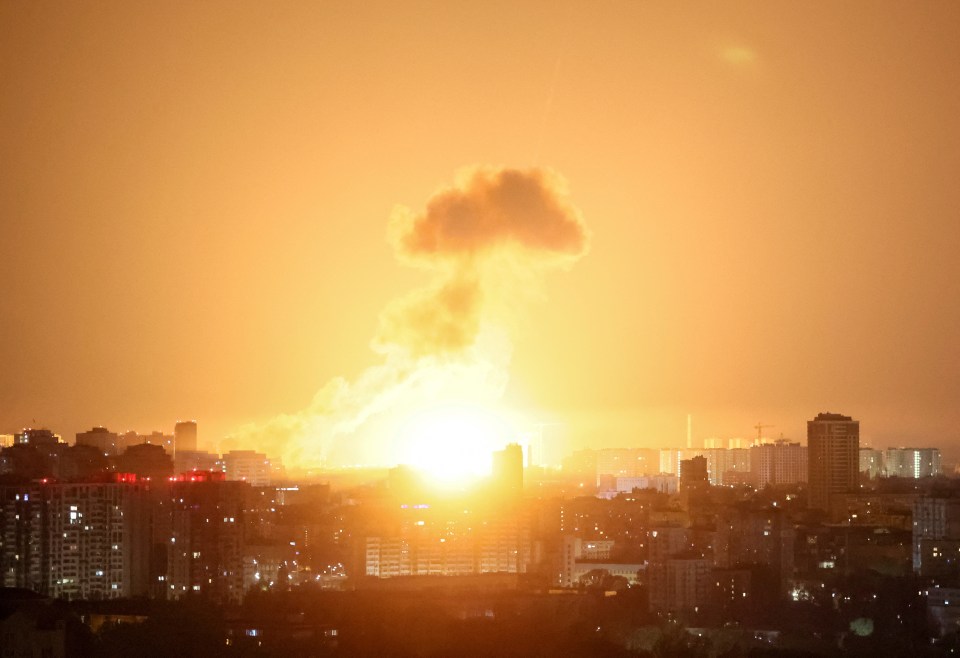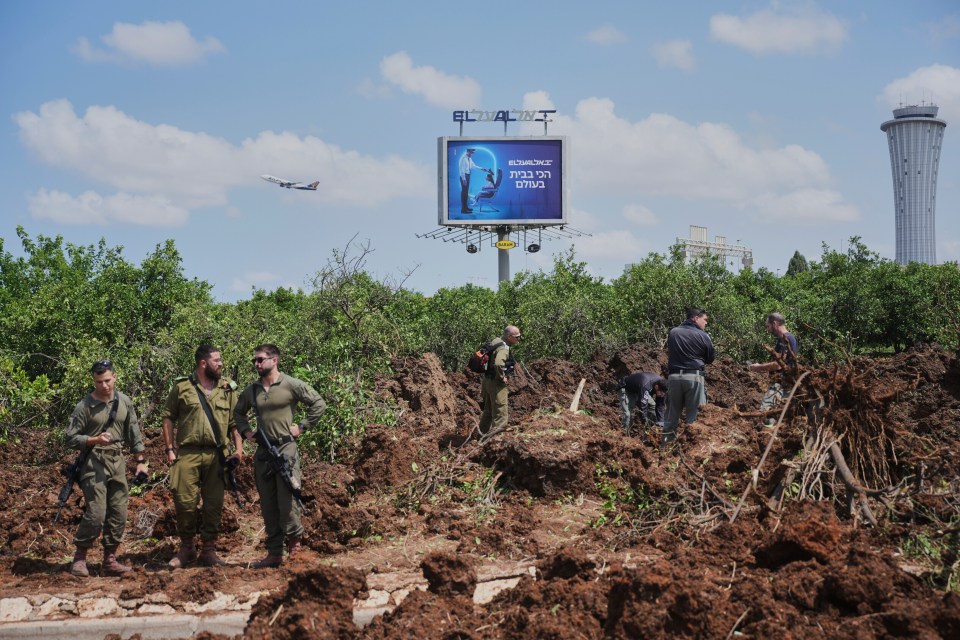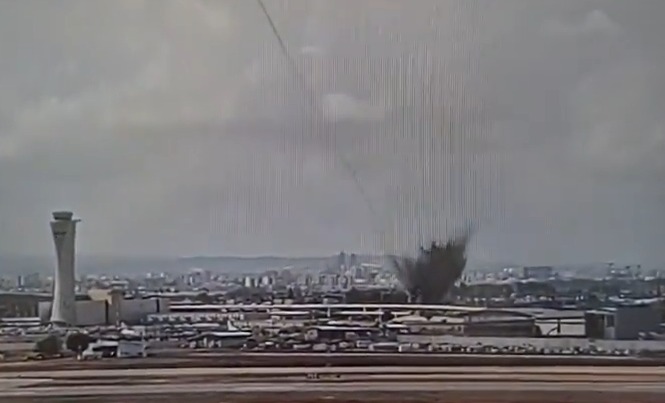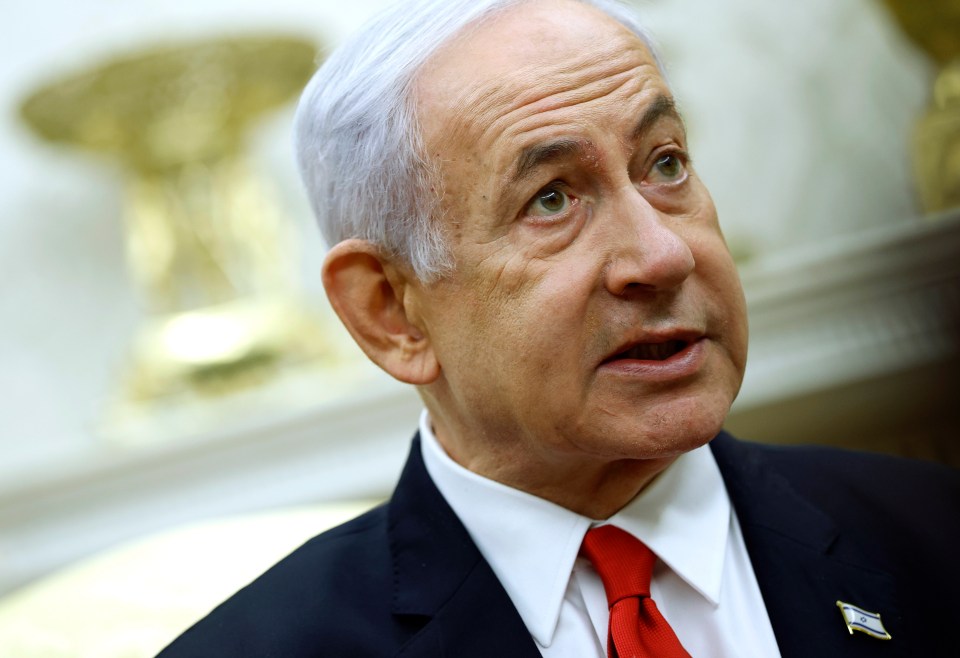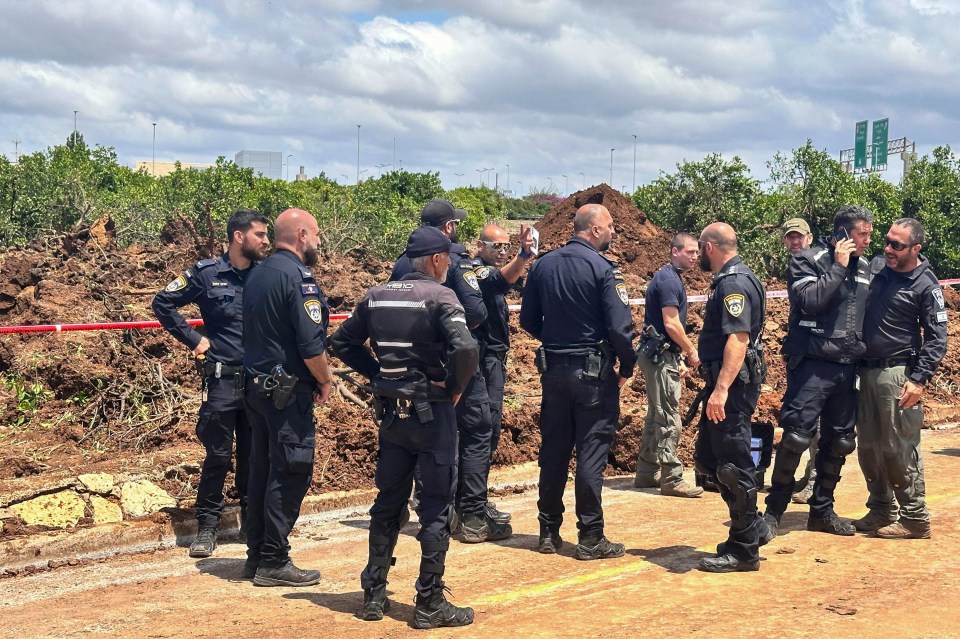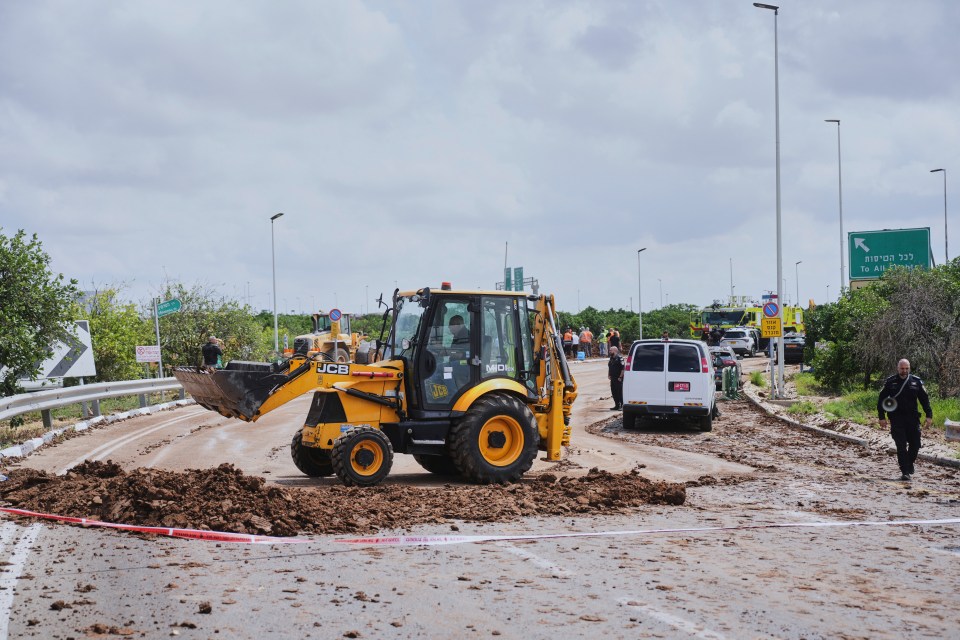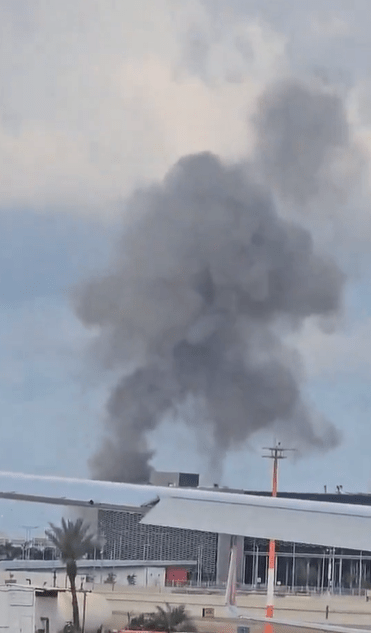ISRAEL has vowed to hit back hard against the Houthis after they bombed its main airport with a missile on Sunday morning.
Prime Minster Benjamin Netanyahu vowed retaliation against the Houthis and “their Iranian terror masters”, and it was officially approved by the security cabinet.
On X, Netanhyayu said that Israel would strike back “at a time and place of our choosing”.
And in a video message, he warned: “This isn’t a one-and-done, but there will be some big hits.”
He also reminded the world that Israel had punished the Houthis in the past – and would do again in the future.
Israel is said to be rethinking its policy of not striking Houthi targets in Yemen, adopted at the request of President Trump.
The Iranian-backed Houthis launched a devastating strike on the Ben Gurion Airport on the outskirts of the capital Tel Aviv.
Chilling video captured the moment the ballistic missile soared through the sky before exploding as it hit the ground.
A huge plume of black smoke billowed high into the sky.
At least eight people were injured by the attack, according to officials, but no one was killed.
Passengers in the terminal were sent into panic and air traffic was suspended for up to an hour.
Some European and US airlines have cancelled flights to the airport for the next few days.
Many had only recently begun to resume services to Israel after the Gaza ceasefire, which put an eight-weeks pause on the fighting.
The Israeli Defence Force said that it made several attempts to intercept the missile, but was unable to do so.
They are now investigating the incident with Prime Minister Benjamin Netanyahu set to hold talks over the attack at 3pm local time today.
Israel’s powerful Iron Dome is responsible for thwarting enemy missiles before they hit.
Operators across the country work around the clock to fend off relentless attacks and the consistent threat of bombardment from Gaza, Lebanon and Iran.
An IDF commander told The Sun last month that the Iron dome has a 96 per cent success rate, so Sunday’s failure will be closely scrutinised.
The Houthis claimed responsibility for the attack straight away, and the IDF confirmed it came from Yemen.
Sunday strike and the incoming retaliation mark a major escalation between Israel and the Houthis in both Yemen and Iran.
National Unity chairman Benny Gantz insisted Iran must be held responsible.
The former defence minister said on X: “This is not Yemen, this is Iran. It is Iran that is firing ballistic missiles at the State of Israel, and it must bear responsibility.
“The Israeli government must wake up.”
Meanwhile, Israel has begun calling up tens of thousands of reservists to “intensify and expand” its military action in Gaza.
The IDF said it was “increasing the pressure” with the aim of returning hostages held in Gaza and defeating Hamas militants.
The Security Council was expected to approve the intensification of the war when it met on Sunday.
Who are the Houthis?

THE Houthi rebels have spent months terrorising the Red Sea by launching persistent missile and drone attacks on vessels and warships – but who are they?
The Shia militant group, which now controls large swaths of Yemen, spent over a decade being largely ignored by the world.
However, since the outbreak of the Israel-Hamas war, they sprung from relative obscurity to holding roughly £1trillion of world trade hostage – turning one of the world’s busiest shipping lanes into an active warzone.
Their warped battle cry is “Death to America, Death to Israel, curse the Jews and victory to Islam”.
Why are they attacking ships?
After the October 7 massacre, Houthis began launching relentless drone and missile attacks on any ships – including warships – they deem to be connected with Israel in solidarity with their ally, Hamas.
In reality, they targeted commercial vessels with little or no link to Israel – forcing global sea traffic to largely halt operations in the region and sending shipping prices around the world soaring.
The sea assaults added to the carnage in the Middle East tinderbox as intense ripples from Israel’s war in Gaza were felt across the region – with Iran accused of stoking the chaos.
The Houthi chiefs pledged their Red Sea attacks would continue until Israel stopped its offensive in Gaza.
The group’s chiefs have previously said their main targets are Israel, and its allies the US and Britain.
And despite repeated threats from the West and joint US and UK strikes blitzing their strongholds in Yemen – Iran’s terror proxy appears undeterred.
The UK and US have hit Houthi bases as recently as this month after the terror group once again targeted boats in the shipping lane.
Israel has also hammered the group with airstrikes, reportedly hitting oil storage tanks at the port in Al Hudaydah.
